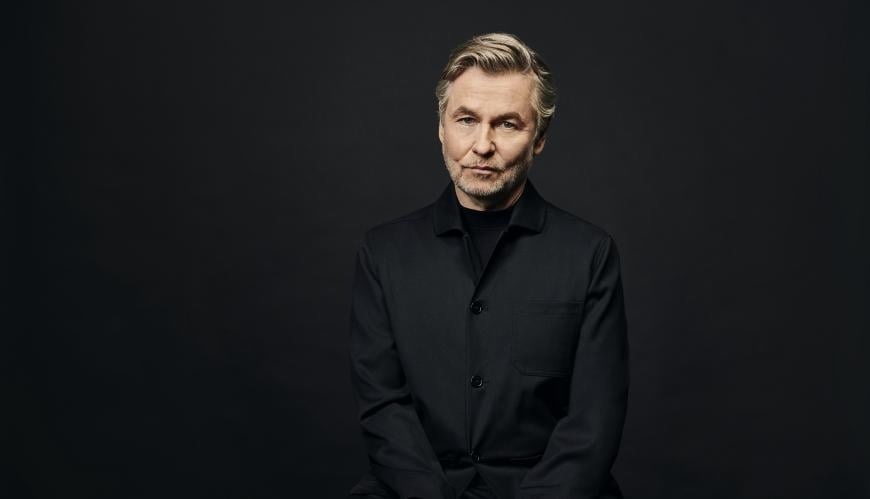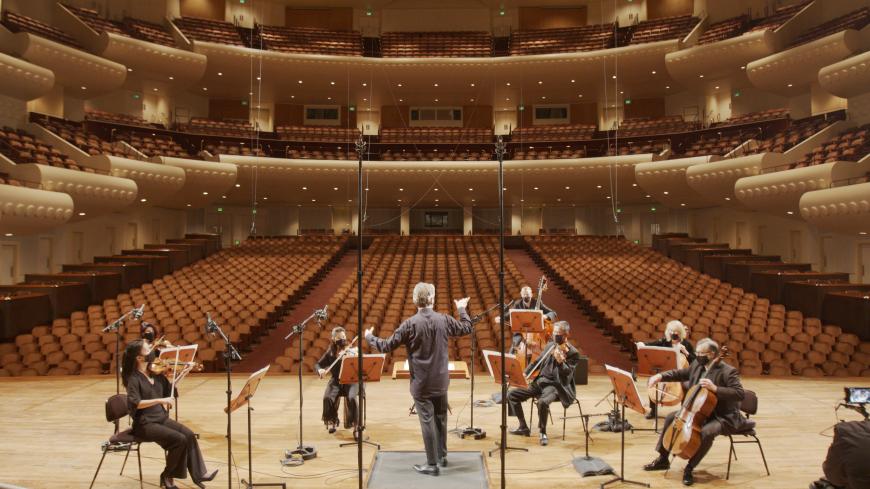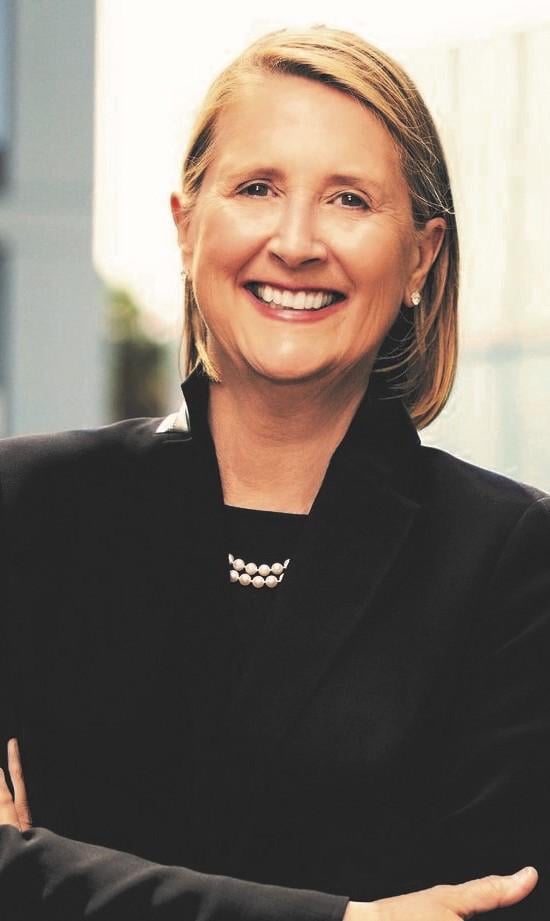
Changing the music director of a major symphony orchestra isn’t like a relay race, where the outgoing maestro just hands the baton to his successor.
Now that it’s been announced that Esa-Pekka Salonen has declined to extend his five-year contract with the San Francisco Symphony after next season, the organization is facing a daunting challenge beyond finding the right person.
There are the practical matters of setting up a search committee, arranging concerts for the top candidates, observing them in rehearsals and in their interactions with the musicians, and so on. Even after a successor is named, time is needed for the new music director to settle in.
Recent turnovers at the SF Symphony — from Edo de Waart (1977–1985) to Herbert Blomstedt (1985–1995) to Michael Tilson Thomas (1995–2020) to Salonen in 2020 — all had more time between departures and arrivals. It was October 2017 when Tilson Thomas announced that he would resign as music director at the end of the 2019–2020 season.
Just as the planned grand finale of MTT’s 25-year tenure was demolished by the pandemic, so too did COVID make a hash of Salonen’s inaugural season. After that, there came a daring return to concerts that required special precautions for musicians and audiences alike. Once the pandemic became more manageable, Salonen started implementing the bold programming he is known for.

When Salonen arrived in San Francisco, no one expected that his tenure would end up being shorter than Jaap van Zweden’s at the New York Philharmonic. Certainly, the job has not been what Salonen might have expected at the time of his appointment in December 2018.
The pandemic was unpredictable. One might or might not have predicted generational change in the SF Symphony’s personnel roster, with many players deciding to retire over the past four years, but Salonen surely can’t have expected that he would have to rebuild the orchestra.
And who would have thought that the board and management would oversee labor negotiations with the musicians that were far more contentious and hostile than the previous agreement? (Or that a possible makeover of Davies Symphony Hall would be discussed concurrently?) The musicians, who are the heart of the organization, feel they deserve the restoration of pay cuts made during the pandemic and a cost-of-living pay raise, while management is clearly in cost-cutting mode, evidenced by its decision earlier this year to cut back the orchestra’s Sound Box series.
“I have decided not to continue as music director of the San Francisco Symphony because I do not share the same goals for the future of the institution as the Board of Governors does,” Salonen said in a statement released to The New York Times and the San Francisco Chronicle. “I am sincerely looking forward to the many exciting programs we have planned for my final season as music director, and am proud to continue working with the world-class musicians of the San Francisco Symphony.”

In the Times article, the orchestra’s CEO, Matthew Spivey, put it more neutrally, saying that the cost cutting was in response to “significant financial pressures,” while stressing the management’s respect for Salonen’s artistry. SFS President Priscilla B. Geeslin also put out a statement on behalf of her colleagues, praising Salonen’s tenure with the orchestra.
While American orchestras have a propensity for pursuing and hiring conductors from abroad, MTT’s success here might lead SFS to consider hiring an American. And while women are still all too rare among today’s U.S. music directors, the orchestra might follow San Francisco Opera’s example and appoint a woman to the position.
Potential music directors from the older generation of conductors might include:
- Marin Alsop, former music director of the Baltimore Symphony
- James Conlon, who announced yesterday that he’ll be stepping down from his longtime position at Los Angeles Opera
- Thomas Dausgaard, former music director of the Seattle Symphony
- JoAnn Falletta, music director of the Buffalo Philharmonic and former music director of the Bay Area’s Women’s Philharmonic
- Andrew Litton, music director of New York City Ballet, currently considered a candidate to succeed Carl St. Clair at Pacific Symphony
- Kent Nagano, California native and former music director of Berkeley Symphony
- Donald Runnicles, outgoing general music director of the Deutsche Oper Berlin, incoming chief conductor of the Dresden Philharmonic (and a known quantity on MTT Way, owing to his 17 years as music director of SF Opera)
- Osmo Vänskä, former music director of the Minnesota Orchestra and Lahti Symphony
- Simone Young, chief conductor of the Sydney Symphony Orchestra
Among conductors under 60, some are Americans or women or both:
- Teddy Abrams, an MTT protege and currently music director of the Louisville Orchestra
- Karina Canellakis, chief conductor of the Netherlands Radio Philharmonic Orchestra
- Elim Chan, chief conductor of the Antwerp Symphony Orchestra
- James Gaffigan, former associate conductor of SFS, now general music director of the Komische Oper Berlin
- Mirga Gražinytė-Tyla, who currently does not hold a music directorship
- Susanna Mälkki, who currently does not hold a music directorship
- Ludovic Morlot, former music director of the Seattle Symphony
- Henrik Nánási, former general music director of the Komische Oper Berlin, whose two appearances at SF Opera were well received
- Sakari Oramo, chief conductor of the BBC Symphony Orchestra
- Rafael Payare, music director of the San Diego Symphony, who made a good impression at SFS recently
- Christian Reif, former resident conductor at SFS, now chief conductor of the Gävle Symphony Orchestra
- Santtu-Matias Rouvali, who succeeded Salonen at the Philharmonia Orchestra in London
- Dalia Stasevska, music director of the Lahti Symphony, whose two appearances at SFS drew raves
- Krzysztof Urbański, whose guest appearances with SFS were spectacular but whose tenure at the Indianapolis Symphony was marred by a lawsuit accusing him of age discrimination (his availability seems dubious as he was just appointed music director of two orchestras in Europe)
- Joseph Young, music director of Berkeley Symphony




